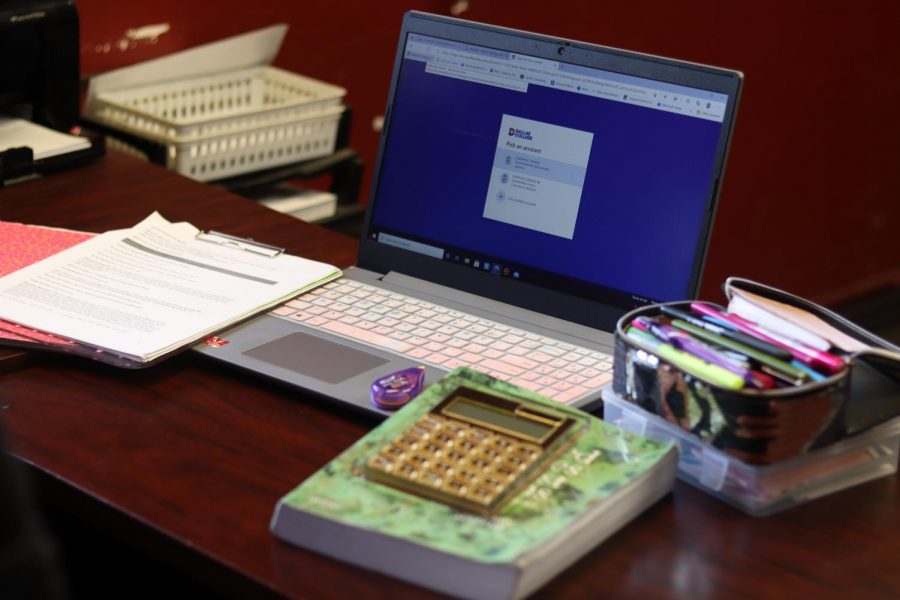Transition to virtual learning weighs on students
May 26, 2021
During the pandemic, 42% of students indicated staying motivated was a major obstacle to completing coursework online, according to Educationdata.org. More than a year ago, students transitioned from seats in their classrooms to a seat at home, facing a screen. Students have found ways to cope, though some have struggled more than others.
Gabriella Gonzalez, a student at Dallas College Brookhaven Campus, said over the past year she has felt worn out and her levels of anxiety have increased.
Gonzalez, who is an international student from Costa Rica, said she doesn’t know a lot of people, so she does not have much social interaction. Gonzalez said, “That makes me sometimes feel enclosed on four walls, and I don’t have anyone to talk to.” She said she feels she is not being herself. She is doing what she must do to get the grades, but college is not enjoyable.
Students have faced challenges in the learning environment this past year. Gonzalez said she is stressed out and feels she is not learning. “Students only learn from the book,” she said. “And if one does not get something, they contact the professor. The professor helps. And that’s it. You don’t have other ways to gain knowledge.”
Although there have been some struggles, some good has come out of it. Gonzalez said she has learned to manage her time. Before the pandemic, the course load was lighter and now it requires more of her time.
Some students have not had a drastic transition but have struggled in different ways. Gabriel Medina, a dual credit student at Brookhaven, said the pandemic affected his household. His two older siblings who also attend college returned home because of COVID-19. “It went from a much smaller household to a bigger household, and that transition affected us,” Medina said. “It’s made it to where I have to work with more people. Having my family back is a good thing but it made everything different.”
Medina said he has struggled to keep up with his work. “It’s really hard when there’s not a requirement to go in class and do work there and then stay afterwards to study,” he said. “Staying motivated has been the hardest thing.”
One of the best things that has helped him is talking to people and keeping up the communication, Medina said. Medina is president of the Brookhaven Student Government Association. “Join a club or organization. Find people who have taken classes, and keep communicating with them because it will help with the motivation,” he said.
Oriana Silva, a student at Brookhaven, said she suggests students reach out to advisers and talk to them about the personal stuff too because problems at home affect school. She recommended reaching out from the beginning, instead of waiting until halfway through the semester.
“Seek help when you need it,” she said. Gonzalez advises struggling students to have a calendar to keep up with all their assignments but to also set aside rest days because self-care is just as important.
According to the Dallas College CARE Team website, “Many times individuals do not ask for help when they need it, so it has become imperative that college employees and students learn to identify and refer students who are in mental distress to the CARE Team.” The CARE Team provides many resources such as online counseling, food pantry referrals and housing cost aid referrals, accessible through their website.
“Brookhaven has a lot of counseling, and we have to promote mental health as college students,” Gonzalez said.


